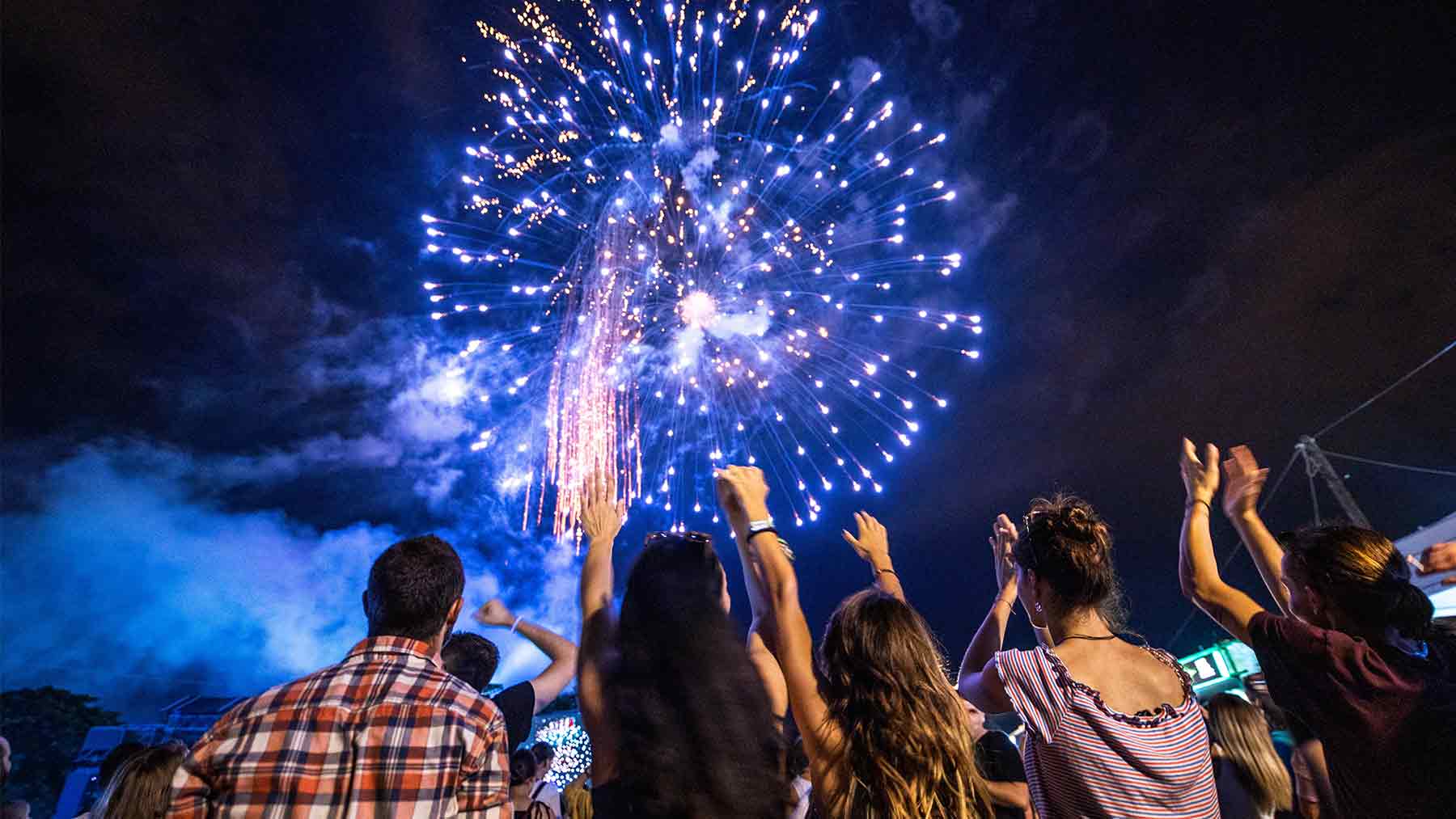Why unexpected fireworks can be upsetting

As we approach the Fourth of July holiday, it’s not uncommon to hear fireworks being set off in neighborhoods. However, this year, there’s been a spike in noise complaints related to fireworks across the country as people are buying record amounts of fireworks.
There’s no clear explanation for why people are setting off an increased number of home fireworks this year. Theories suggest young people who are quarantined may be using fireworks as a way to blow off steam. Others suggest, because many community fireworks celebrations have been cancelled due to COVID-19, more people are buying and setting off their own fireworks. It could be a combination of the two.
But it’s important to realize that random displays of fireworks can be detrimental to those who have been exposed to gun violence, or who have served in the military or in law enforcement. Hearing unexpected loud noises from fireworks could trigger their post-traumatic stress disorder (PTSD).
What is PTSD?
PTSD is a disorder that occurs when you’re exposed directly or indirectly to a potentially life threatening event. In response to the event, your mind and body are triggered into a state of hypervigilance.
This state is a survival mechanism that all of us have. However, most don’t have life experiences that hit the threshold of creating the disorder.
When you experience a single, large trigger, or multiple smaller triggers, over time your body begins to function in a state of hypervigilance that cannot be turned off.
Because of this hypervigilance, you may start avoiding situations—people places or things—that remind you of the trauma.
If you’re unable to avoid triggers, you may try to control exposure events that remind you of your trauma. You may try to limit time in public or avoid attending large events or being in any situation in which you no longer feel in control.
When this occurs, victims of PTSD begin to reach out to only those they trust. At times, this can be a very small list of trusted individuals. Over time, reaching out during times of extreme stress takes a toll on relationships. Frequently, the person with PTSD becomes increasingly isolated, finding it difficult to manage their stress, anxiety, depression and loss.
What type of problems do fireworks cause for those who have PTSD?
Since hypervigilance is a known aspect of PTSD, those with PTSD have a startle response that’s triggered when they experience unexpected sounds.
While fireworks are enjoyed by many, for those who have a heightened response, the fireworks may be a trigger to send them into a state of hypervigilance. They may experience increased heart rate, shortness of breath, perspiration and other physical responses to what sounds close enough to gunfire to trigger a response.
Frequently, this will only last for a few minutes, but it has the potential to change the individual’s level of functioning for hours to days after the trigger. For some, the trigger will change the person’s mood, or lead them to seek situations where the triggers aren’t as frequent.
How to help?
When a person is triggered, typically a supportive response acknowledging the trigger event is the most effective approach. However, when people are triggered, they frequently experience agitation and frustration. Knowing this will help address the approach to providing support.
If the individual is agitated, ask if they need to change locations, take a break from the holiday party or take a quick walk.
Suggest taking a few deep breaths to help regulate their respirations, which are frequently changed when the startle response occurs. Remind them that they’re in a safe place with others who are supportive of them.
Are there any other detrimental effects to home firework displays?
The quick answer is yes. Each year, many people go to emergency rooms because of injuries related to fireworks.
The United States Consumer Product Safety Commission reports 12 people died from fireworks injuries in 2019. Fireworks were involved with an estimated 10,000 injuries treated in U.S. hospital emergency departments in 2019.
Additionally, many animals are affected in ways similar to those with PTSD, because many pets have a heightened sense of hearing. The impact of home fireworks are similar to large firework displays.
Fireworks scare animals, causing many of them to run away from the noise. This is true of pets and farm animals as well as wild animals.
What can we do to minimize the impact?
For you’re aware that fireworks are a trigger, stay inside. Make plans to watch fireworks on television if you find this is a safer way to enjoy the display.
The key is making a safe environment, where those who are triggered have a plan to exit the fireworks if they become a negative experience.
Finally, be proactive. If you plan to enjoy fireworks, be certain to have a back-up plan to mitigate any negative impacts.
Do something other than fireworks. While many will argue that they can distinguish fireworks from gunfire, not all are in a frame of mind that makes this possible.
Let your neighbors know that you’re going to be having a home fireworks display, and provide the day and approximate time. That way there’s less of a risk of negative exposure.
Ken Yeager is director of the Stress, Trauma and Resilience (STAR) Program at The Ohio State University Wexner Medical Center and a professor of psychiatry and behavioral health at The Ohio State University College of Medicine.




